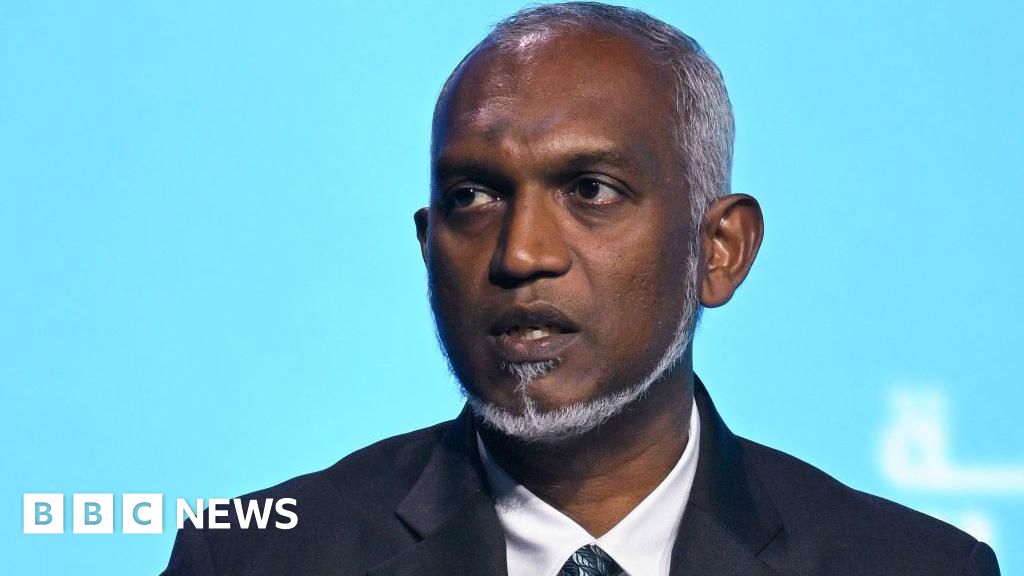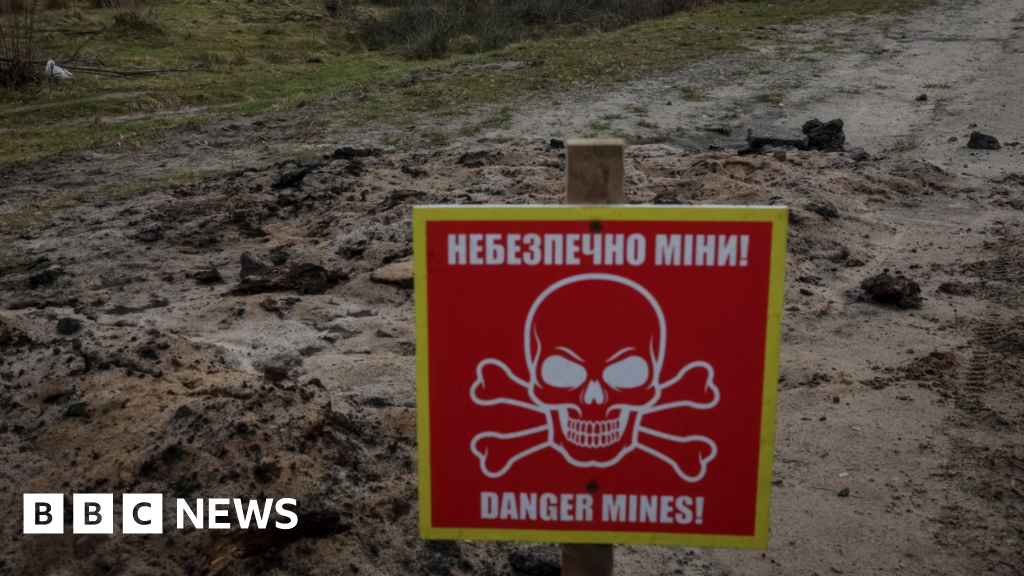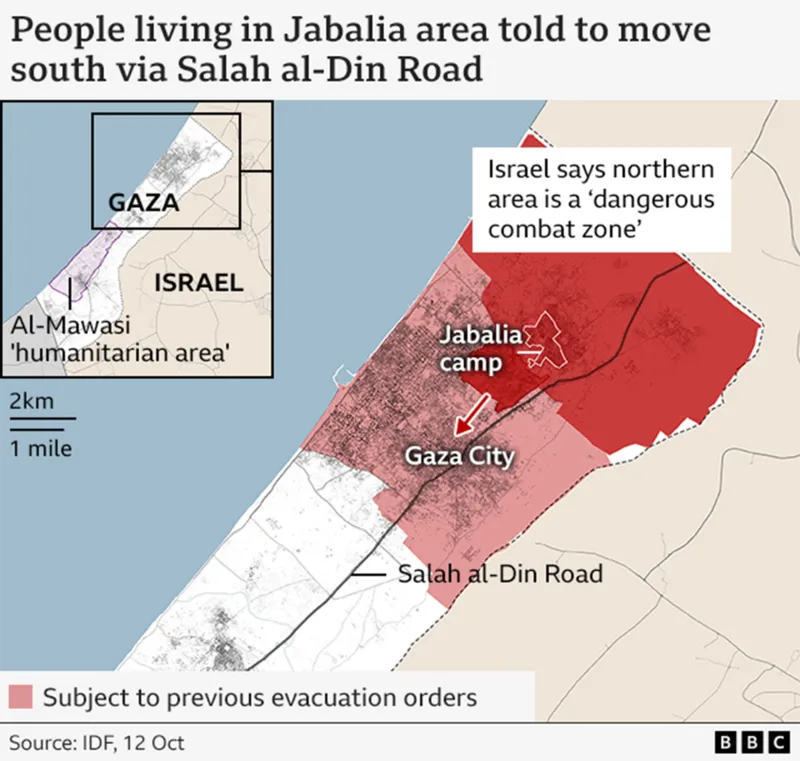
Maldivian President Mohammed Muizzu has told the BBC that he is confident that India will come to the aid of the island nation as it faces an economic crisis.
Muizzu, who begins a five-day visit to India on Sunday, is expected to seek a bailout worth hundreds of millions of dollars.
The Maldives is staring at a debt default as its foreign exchange reserves have dropped to $440m (£334m), just enough for one-and-a-half months of imports.
“India is fully cognizant of our fiscal situation, and as one of our biggest development partners, will always be ready to ease our burden, find better alternatives and solutions to the challenges we face,” Muizzu told the BBC in an email interview ahead of his visit.
Experts point out that Muizzu’s reconciliatory tone towards Delhi is a far cry from the rhetoric he adopted during his election campaign a year ago. That campaign had centred on an “India out” policy, demanding that Delhi must withdraw its troops from the island nation.
Speaking to the BBC, Muizzu did not directly address his anti-India campaign but said: “We are confident that any differences can be addressed through open dialogue and mutual understanding.”
An Indian relief package will bolster the country’s foreign currency reserves.
Last month, global agency Moody’s downgraded the Maldives’ credit rating, saying that “default risks have risen materially”.
But Muizzu told the BBC that Male is not facing a sovereign debt default, adding that the country would not join an International Monetary Fund (IMF) programme to handle the crisis.
“We have our own home-grown agenda,” he said.
However, Moody has said that “(foreign) reserves remain significantly below the government’s external debt service of around $600m in 2025 and over $1bn in 2026”.
It’s not clear where Muizzu will find the money to overcome the reserves crisis and that’s where his Delhi visit is seen as crucial. India has already offered financial support worth $1.4bn to Male for various infrastructure and development projects.
Since Muizzu came to power in November 2023, relations between Male and Delhi have become strained.
Soon after taking over, he chose to travel to Turkey and China – his visit to the latter in January was seen especially as a high-profile snub to India as previous Maldivian leaders first visited Delhi after being elected. Around the same time, a controversy erupted in India after three Maldivian officials made derogatory comments about Prime Minister Narendra Modi.
Muizzu also gave an ultimatum to India to withdraw about 80 troops based in the country. Delhi said they were stationed there to maintain and operate two rescue and reconnaissance helicopters and a Dornier aircraft it had donated years ago.
In the end, both countries reached a compromise by agreeing to replace soldiers with Indian civilian technical staff to operate the aircraft.
Muizzu’s administration also announced that it would not renew a hydrographic survey agreement with India that was signed by the previous government to map the seabed in Maldivian territorial waters.
But the Maldivian president defended his decision.
“The decisions taken are based on our evolving domestic interests and strategic priorities. The will of the people, that elected me 10 months ago,” Muizzu said.
“I believe both the Maldives and India have a better understanding of each others’ priorities and concerns,” he added.
Some of Muizzu’s decisions were seen as a way to reduce Delhi’s influence and forge closer ties with India’s rival China.
In February, Muizzu’s administration allowed the port call of a Chinese research ship, Xiang Yang Hong 3, in the Maldives, much to Delhi’s displeasure. Some saw it as a mission to collect data which could – at a later date – be used by the Chinese military for submarine operations.
But Muizzu rejects the pro-China tag.
“I have made clear our foreign policy the day I took office – that it is a ‘Maldives First’ policy. Our relationships with other nations are guided by the principles of mutual respect and trust, non-interference and the pursuit of peace and prosperity,” he insists.
“We believe that through open communication and collaboration, we can address any concerns, contributing to a peaceful and prosperous Indian Ocean region,” he says.
Despite Muizzu’s attempts to move Male closer to Beijing, analysts say financial assistance from China hasn’t been forthcoming,
As a result, the president’s extraordinary turnaround towards India now is based on harsh realities.
Muizzu’s Delhi visit “is a realisation of how dependent the Maldives is on India, a dependency that no other country will find easy to fill”, says Azim Zahir, a Maldivian analyst.



